Book An Appointment

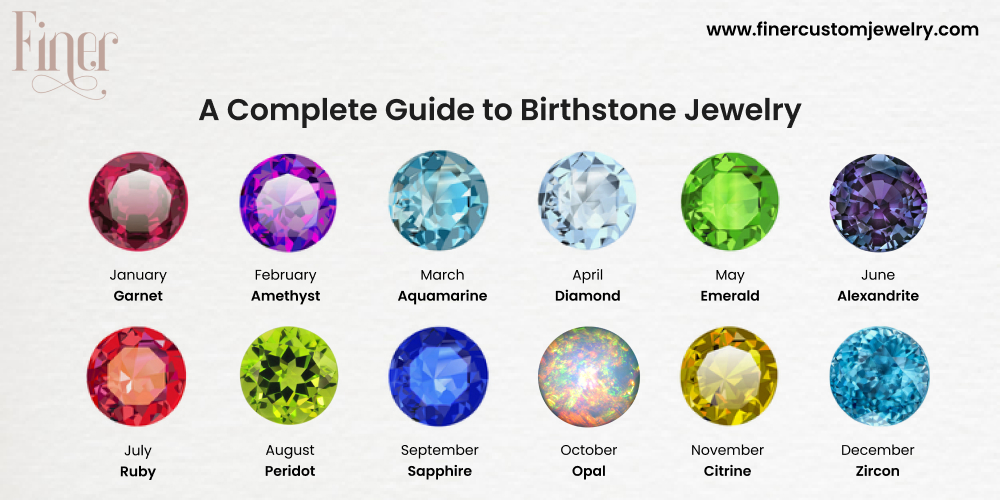
Birthstones have been around for so long that you’d assume the list of jewels is, well, set in stone, right? That is incorrect. Even though the notion dates back to Biblical times, the list was just updated two years ago. The National Association of Jewelers, currently known as Jewelers of America, formed the essence of the contemporary American list in 1912. It attempted to arrange the jewels connected with certain months through the ages. You’d think that the list would be complete after that watershed event, but it’s not. In 2016, Jewelers of America included spinel in the August month of birthstones. Find your birthstone below to learn about what makes you unique, as well as the fascinating facts about your birthstone! You can have your birthstone jewelry too.
January – Garnet
February – Amethyst
March – Aquamarine
April – Diamond
May – Emerald
June – Alexandrite
July – Ruby
August – Peridot
September – Sapphire
October – Opal
November – Citrine
December – Zircon
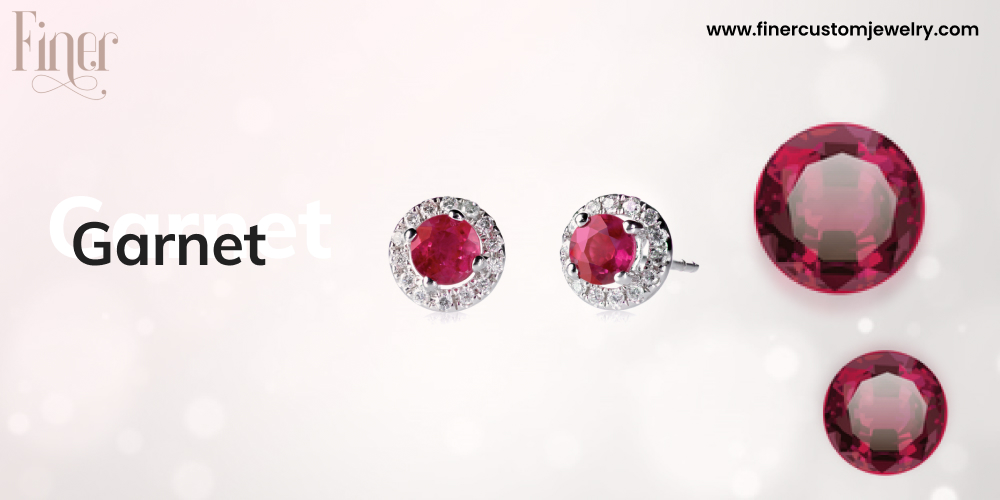
Garnet refers to a collection of minerals with common crystal shapes but somewhat varying chemical compositions, resulting in gemstones of nearly every hue. Although red garnets are the most well-known, gemstone buyers and collectors may choose from a broad range of garnet hues, including greens, oranges, pinkish oranges, purplish reds, and even some blues. Finer jewelry Scottsdale offers a stunning selection of garnet jewelry in various colors to suit any preference.
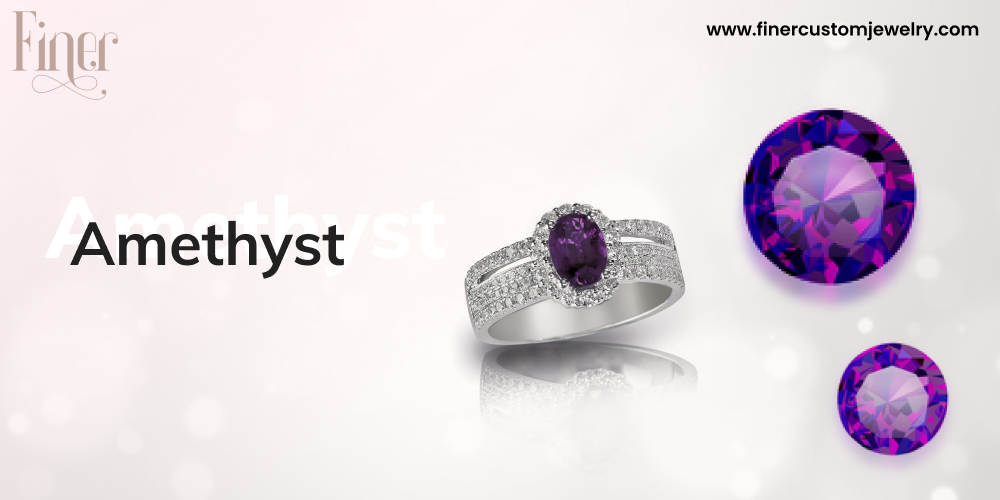
The purple hue of amethyst can range from mild lilac to deep, strong royal purple, and from brownish to bright. The best hue is a strong reddish-purple to dark purple, as long as the stone is not too dark that it dims the light. Amethyst may be cut into several typical shapes and patterns. Amethyst is also a popular stone for carving into a wide range of freeform styles. This is done either by hand or using an automated cutting machine. These fantasy or designer cuts can be mass-manufactured or manufactured as one-of-a-kind items. Dallas finer jewelry offers a beautiful selection of amethyst pieces in various cuts and styles to suit your personal taste.
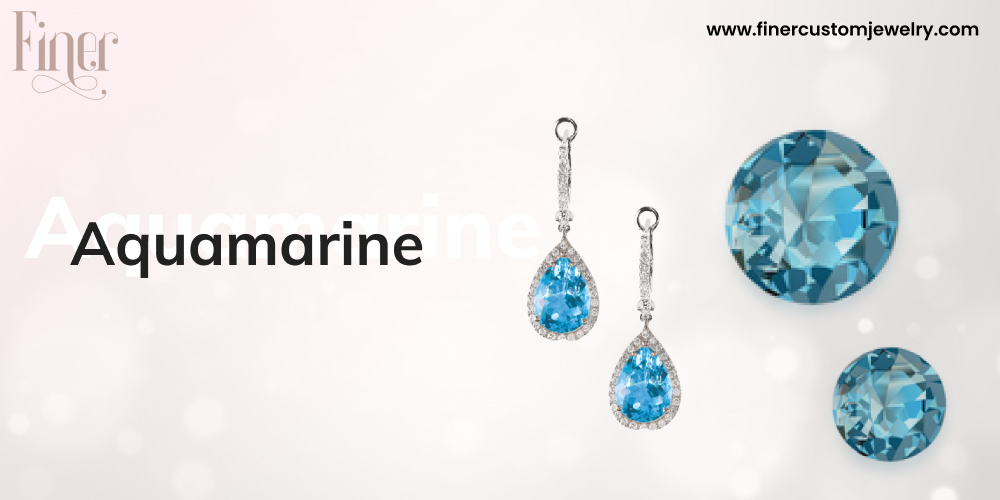
Aquamarine has a fairly limited color spectrum, mainly including blue or greenish-blue tones. The most expensive hue in the gemstone is a dark blue to slightly greenish blue with relatively high intensity—the purer and more vivid the blue hue, in general, the more expensive the stone. The hardness and clarity of the gemstone make it attractive among designers, painters, and carvers. Finer jewelry Houston offers a stunning range of aquamarine pieces, highlighting the stone’s beautiful hues and exceptional clarity.
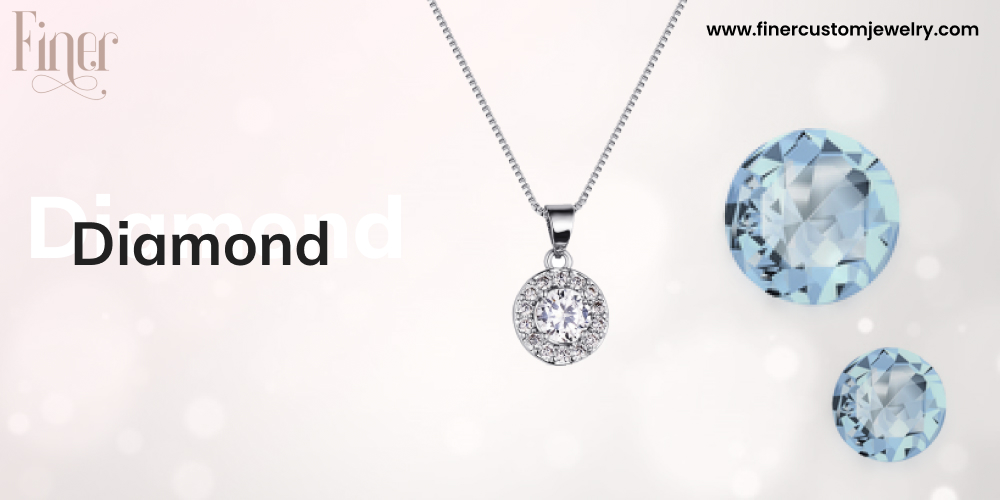
A diamond’s hue can range from clear to lightly tinged yellow. By emphasizing the inherent inclusions and form of the diamond, the cut of a diamond may either assist or damage its value. The cut is unique to the symmetry and polish of the diamond; therefore, a superior cut will highlight the diamond better. Visit a jewelry store in Dallas to explore a variety of diamonds and find one with a superior cut that enhances its natural beauty.
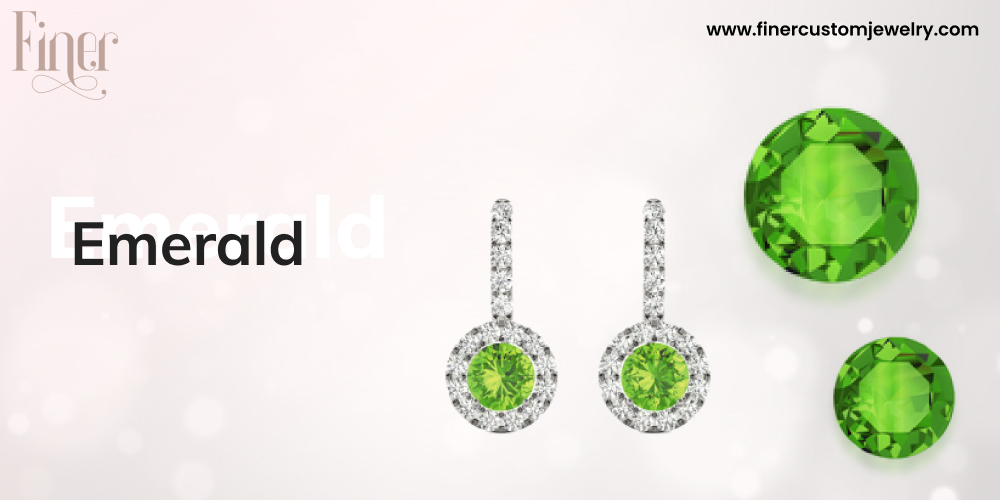
The brightness of its hue distinguishes the emerald as a one-of-a-kind gemstone. Emerald, on the other hand, nearly always contains some inclusions. These fractures, microscopic crystals, and even bubbles frequently impair the evenness of the hue of the gemstone. The presence of fine inclusions does not detract from the high value with which it is held. Even with inclusions, an emerald in a rich, vibrant green is worth far more than a nearly perfect emerald in a milder tint. Emerald is the most well-known member of the beryl family, including aquamarine, Morganite, and other less well-known gemstones. The presence of chromium or vanadium causes the green in emeralds.
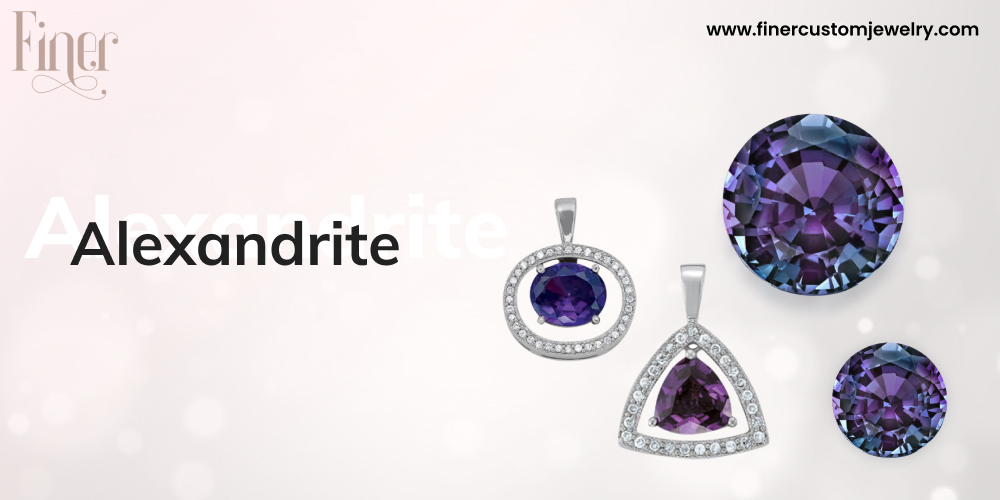
An excellent alexandrite has a medium tone and strong hues that shift from blue-green in the daytime to ruby red or purplish-red in incandescent or candlelight. Some alexandrites are less desirable since the colors bleed, allowing both hues to be visible at the same time. Because the light sources are frequently intermingled in any case, this is a highly common occurrence. Brownish and grey tones are frequent in alexandrites, and their presence detracts from the stones’ attractiveness and value.
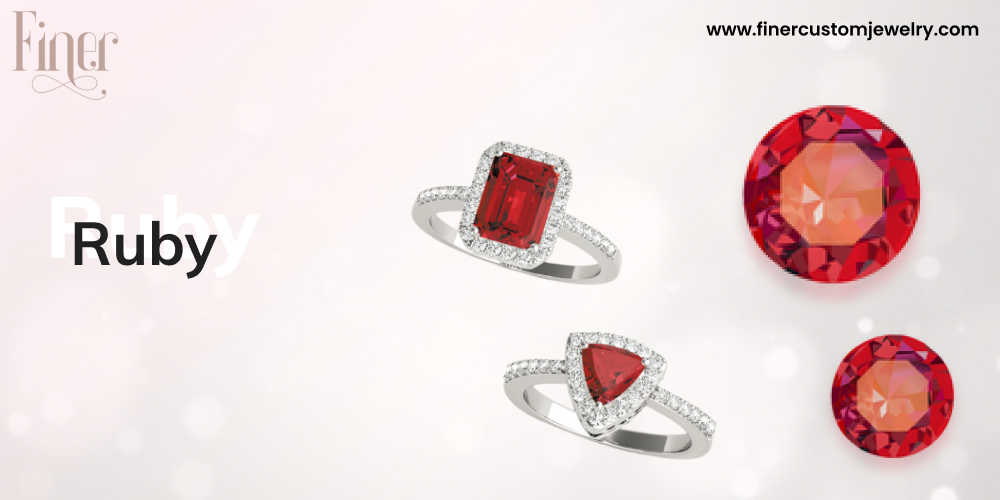
Ruby is a kind of corundum mineral, which also contains sapphire. Ruby is the most costly form of corundum and has the highest per-carat price of any colored stone, making it one of the most significant jewels in the colored stone market. In its finest form, corundum is colorless, but trace amounts of chromium give the ruby’s red hue, ranging from orangy-red to purplish red. The amount of chromium present directly impacts the strength of the ruby’s red color: the more chromium, the deeper the red hue. When the chromium creates fluorescence, the intensity can also be raised.
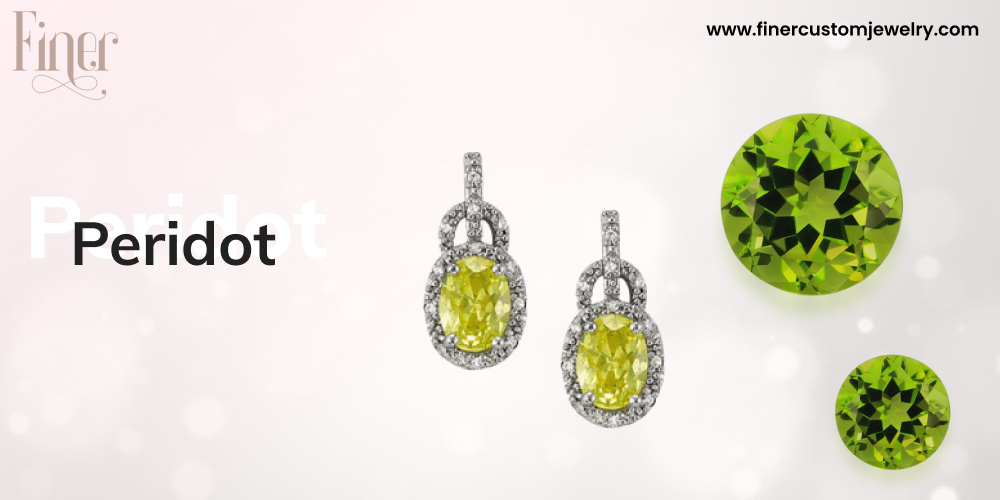
Peridot is one of the few gemstones exclusively available in one color: green. The hues range from olive green to golden green. The most valuable peridots are rich in iron and have a deep green tone with no hints of brown or yellow. These higher-quality stones often weigh more than 10 carats and are sourced from Myanmar and Pakistan. In today’s market, practically all peridot gemstones are a more yellowish-green color. Because raw peridot is widely accessible, it may be fashioned into various forms and cutting styles. Designers contribute to a plethora of different versions of the basic cuts and develop mixed cuts, as well as beads and carvings, in addition to the jewelry industry’s traditional gem forms.
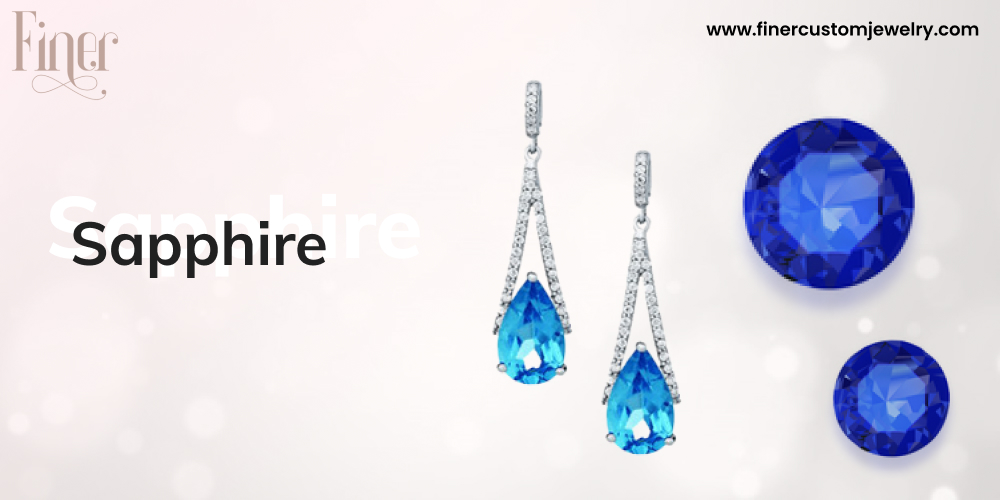
Sapphire is both hard and robust, making it an ideal gemstone for everyday jewelry. Sapphire is a member of the corundum family, and though most people associate the gemstone with blue, it is available in a variety of colors. Pink, purple, violet, green, yellow, orange, and intermediate colors are available in fancy sapphires. Some crystals with two or more hues have been mined and cut, yielding a particolored gemstone. Color-changing sapphires and those showing asterism, often known as the star effect, have been identified.
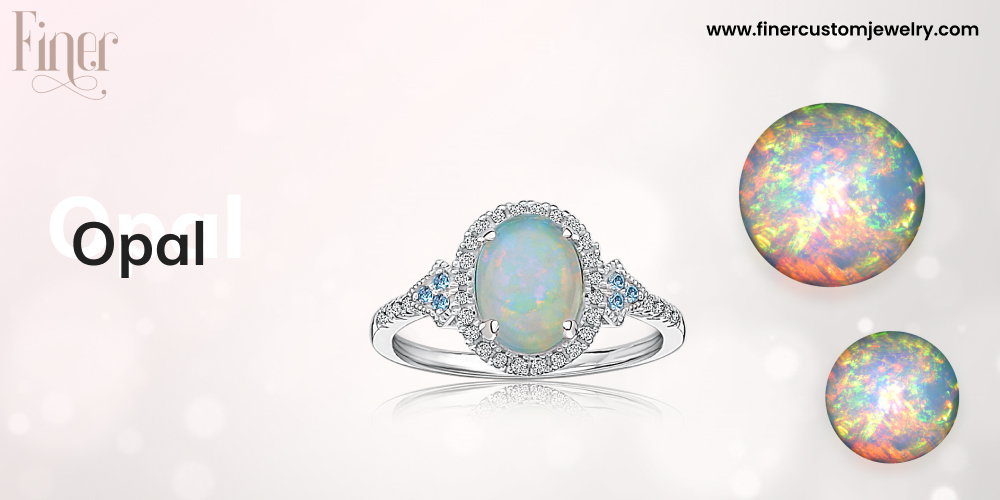
More than any other gemstone, Opal has a diverse range of looks and color options. Because opal is such a distinctive stone, it may seem different from every perspective. Opal dazzles the eye with a stunning display of flashing and dancing colors, which move and shift inside the stone’s various layers. Opal has been described in a variety of ways, ranging from fireworks to rainbows. Under a powerful microscope, an opal exposes the secret of its unusual display of all the colors of the rainbow, known as play-of-color. Because opal is made up of numerous sub-microscopic spheres piled firmly together, it has play-of-color.
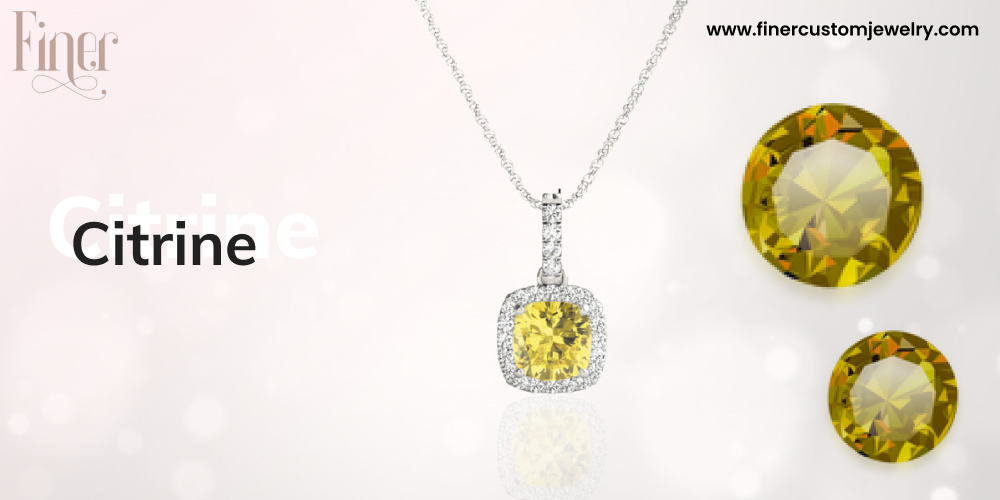
Citrine ranges in hue from bright yellow to golden to reddish-brown. Because the hue closely mimics Madeira wine, the reddish-brown citrines are usually referred to as Madeira Citrine. Amethyst and citrine hues may coexist in the same quartz crystal in Bolivia, and these one-of-a-kind jewels are known as ametrine. Because citrine is made from quartz, the crystals that are heat-treated to create citrine come in a variety of forms and sizes. Bigger gemstones weighing up to twenty carats are abundant, yet the price per carat of citrine does not skyrocket with these larger quantities.
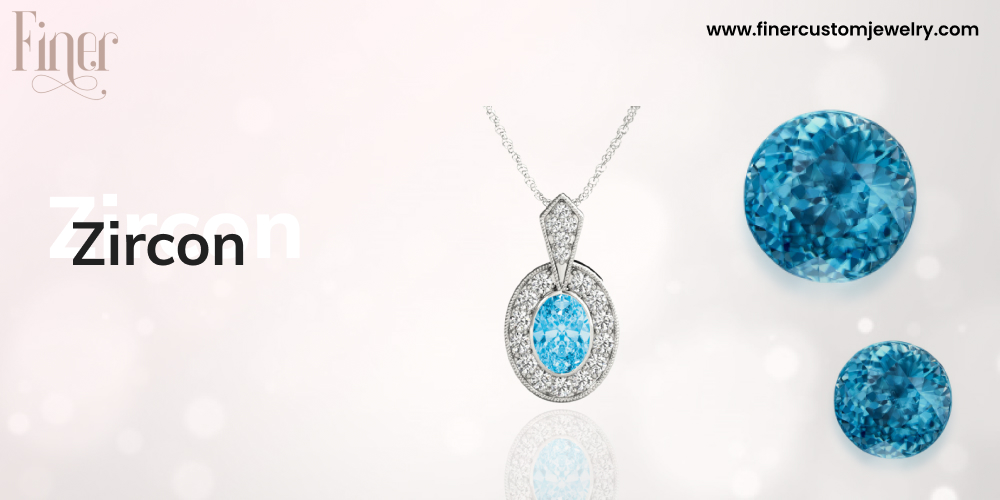
Zircon is used to treat the optical characteristics of materials with a high refractive index. It is also doubly refractive, which is an optical phenomenon that occurs on some minerals when a single light beam reaches the gemstone and divides into two independent rays. These two qualities enable the stone to return a large amount of multicolored light known as “fire” and a distinctive brightness to the beholder, making it a highly popular stone. Indeed, the way zircon handles light is so similar to that of diamond that the two jewels were frequently confused for millennia.